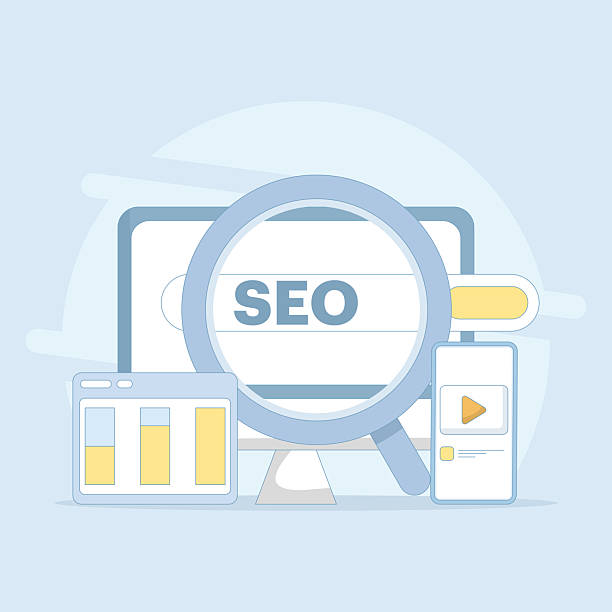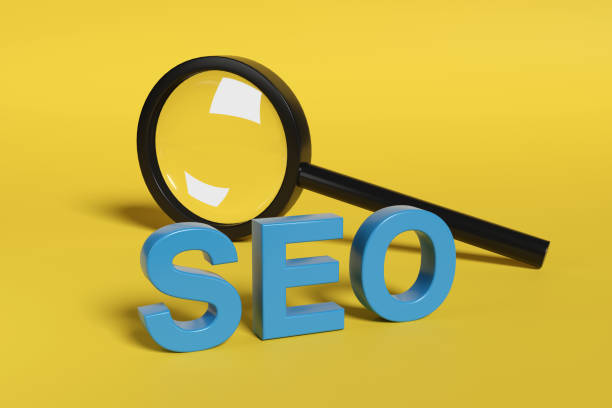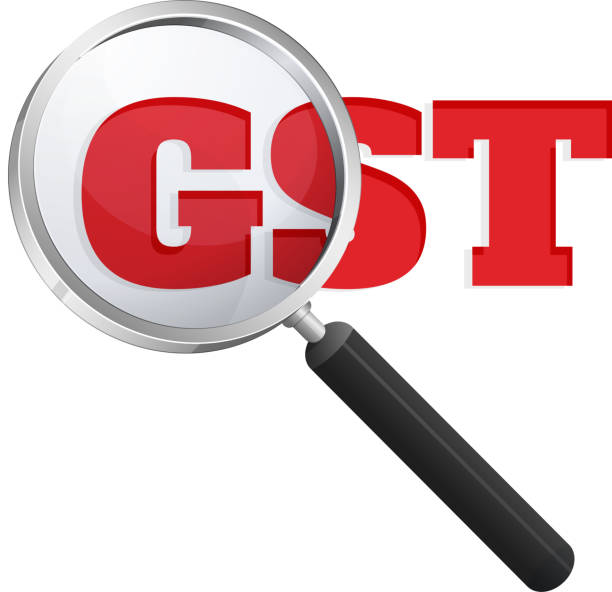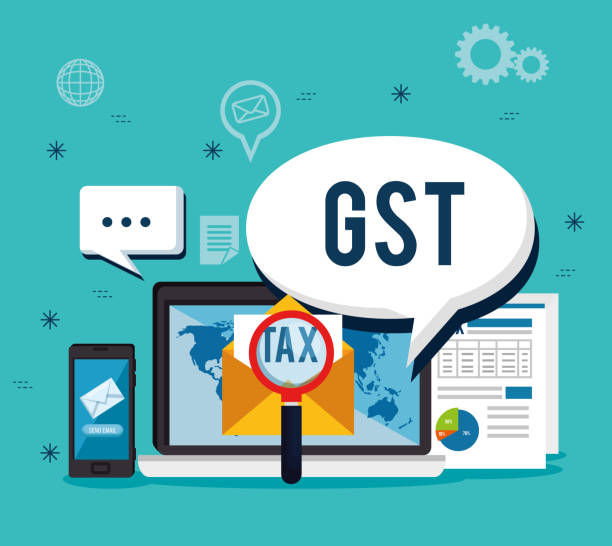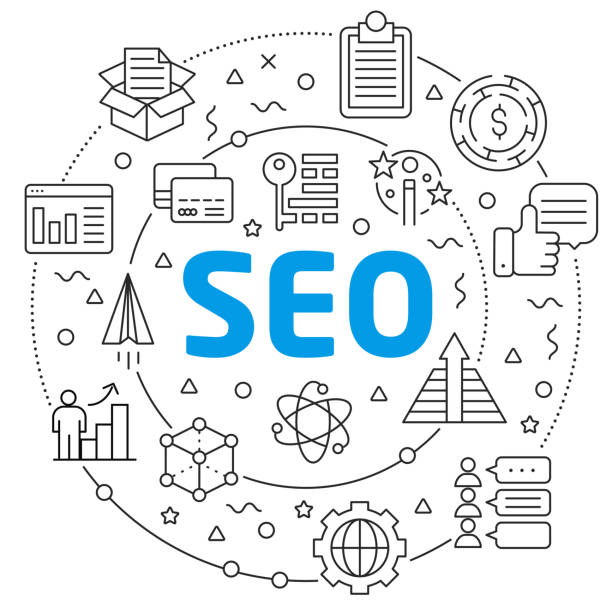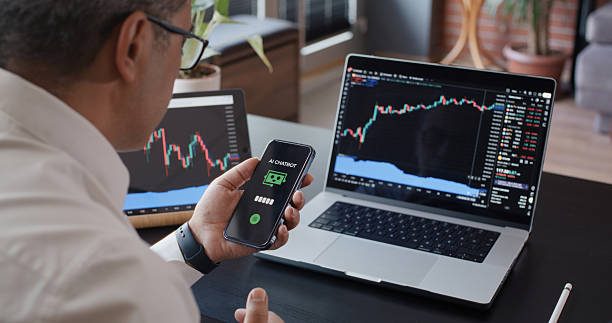What is Off-Page SEO? Why is it important?
Off-Page SEO refers to a set of activities performed outside your website aimed at improving the website’s ranking in search engine results (SERPs).
Unlike #On-Page_SEO, which focuses on optimizing elements within your website, Off-Page SEO relies on increasing the website’s authority and reputation on the internet.
This authority is gained through factors such as backlinks, social media, branding, and online marketing activities.
The importance of Off-Page SEO stems from the fact that search engines like Google consider a website’s authority and reputation as one of the most crucial ranking factors.
The more backlinks a website receives from reputable and relevant sources, the higher its chances of ranking at the top of search results.
In essence, Off-Page SEO tells Google that your website is a valuable and trustworthy resource.
In general, Off-Page SEO helps with the following:
- Increasing website authority and reputation
- Improving search engine rankings
- Boosting organic traffic
- Branding and increasing brand awareness
- Improving conversion rates
In this article, we will delve into the key techniques and strategies of Off-Page SEO.
Is your e-commerce site ready to attract maximum customers and increase sales? Rasawb transforms your online business with modern and efficient e-commerce website designs.
✅ Increased speed and improved SEO
✅ Excellent user experience on mobile and desktop⚡ Get a free e-commerce website design consultation from Rasawb!
What are Backlinks? Their Role in Off-Page SEO
A Backlink is a link given from another website to your website.
Backlinks are one of the most important factors in Off-Page SEO and play a crucial role in a website’s ranking in search results.
Google and other search engines consider backlinks as a “vote of confidence” from other websites to yours.
The more backlinks are received from reputable and relevant websites, the greater their value for Off-Page SEO.
Types of backlinks by quality:
- High-quality backlinks: These backlinks are received from reputable, relevant, and high-Domain Authority websites.
- Low-quality backlinks: These backlinks are received from spammy, irrelevant, and low-Domain Authority websites.
These types of backlinks can harm your website’s ranking.
Methods for obtaining backlinks:
- Producing quality content: Creating valuable and engaging content can naturally lead to backlinks.
- Building relationships with other websites: Establishing connections with relevant websites and exchanging links can help in obtaining backlinks.
- Participating in forums and social media: Being active in forums and social media and linking back to your website when appropriate can help in obtaining backlinks.
- Buying backlinks: Buying backlinks should be done with caution and only from reputable websites.
Note that obtaining high-quality backlinks is time-consuming and challenging, but it is worth it.
Using illegal and spammy methods to get backlinks can result in your website being penalized by Google.
Types of Backlinks: Dofollow and Nofollow
Backlinks are technically divided into two categories: Dofollow and Nofollow.
These two types of backlinks differ in how they affect a website’s ranking in search results.
Dofollow backlink: This type of backlink tells search engines that the link is credible and should pass its authority to the destination website.
Dofollow backlinks have the most direct impact on a website’s ranking in search results.
Nofollow backlink: This type of backlink tells search engines that the link is not credible and should not pass its authority to the destination website.
Nofollow backlinks do not directly affect a website’s ranking in search results, but they can help increase website traffic and branding.
The nofollow tag appears as rel=”nofollow” in the HTML code of the link.
Generally, it is recommended to have a mix of dofollow and nofollow backlinks in your backlink profile.
Having only dofollow backlinks can look suspicious to Google and lead to your website being penalized.
Here is a table showing the differences between these two types of links:
| Feature | Dofollow | Nofollow |
|---|---|---|
| Impact on Rank | Very High | Low |
| Authority | Passed | Not Passed |
| Tag | None | rel="nofollow" |
An Off-Page SEO strategy dictates that we should have a balanced mix of both types of links.
White Hat Link Building Techniques
White Hat Link Building refers to a set of techniques used to obtain backlinks from other websites legally and in accordance with Google’s guidelines.
These techniques focus on creating quality content, building relationships with other websites, and providing value to users.
Click here to preview your posts with PRO themes ››
Some white hat link building techniques include:
- Producing high-quality and valuable content: Creating content that is engaging and useful for users can naturally lead to backlinks.
- Creating infographics: Infographics present information visually and attractively and can be easily shared on other websites.
- Guest posting: Writing articles for other websites in your field and linking back to your website within the article can help obtain backlinks.
- Participating in forums and social media: Being active in forums and social media and providing helpful answers to users’ questions can help attract traffic and obtain backlinks.
- Building relationships with influencers: Connecting with influencers in your field and asking them to share your content can help increase brand awareness and obtain backlinks.
Using white hat link building techniques is time-consuming and challenging, but it is the best way to build a strong and sustainable backlink profile.
In this method, #Off_Page_SEO yields effective and long-term results.
Are you tired of your e-commerce site having visitors but no sales? Rasawb solves your core problem with professional e-commerce website designs!
✅ Significant increase in sales with targeted design
✅ Seamless user experience for your customers
⚡ Get a free consultation now!
Social Networks and Their Impact on Off-Page SEO
Social networks play an important role in Off-Page SEO.
Although social media links do not directly affect a website’s ranking in search results (as they are usually nofollow), they can help increase website traffic, branding, and brand awareness.
The more your content is shared on social media, the greater your chance of being seen by users and receiving backlinks from other websites.
Methods for using social networks for Off-Page SEO:
- Sharing quality content: Share your content on social media and use relevant hashtags.
- Engaging with users: Respond to users’ questions and comments and interact with them.
- Participating in relevant groups and communities: Participate in groups and communities related to your field and share your content with them.
- Advertising on social media: Use social media advertising to increase brand awareness and drive traffic to your website.
Best social networks for Off-Page SEO:
- Facebook: The world’s largest social network with over 2.9 billion monthly active users.
- Twitter: A network for sharing short news and opinions.
- Instagram: A network for sharing images and videos.
- LinkedIn: A network for professionals and businesses.
- Pinterest: A network for sharing images and ideas.
Continuous and targeted activity on social networks can help improve your Off-Page SEO and increase your website traffic.
Branding and Its Impact on Off-Page SEO
Branding refers to the process of creating a unique and distinct identity for your business.
A strong brand can help improve your Off-Page SEO and increase your website traffic.
When users search for your brand name, it indicates that they trust you and are looking for more information about you.
This shows Google that your website is authoritative and valuable.
Methods to strengthen branding for Off-Page SEO:
- Creating an attractive and memorable brand name: Your brand name should be short, easy to pronounce, and relevant to your field.
- Designing a professional logo: Your logo should be unique and recognizable.
- Creating a professionally designed website: Your website should be user-friendly, fast, and have a modern design.
- Producing high-quality and valuable content: Your content should be engaging and useful for users.
- Active presence on social media: Be active on social media and interact with users.
- Providing excellent customer service: Provide excellent service to your customers and respond quickly to their questions and problems.
A strong brand can help you achieve better search rankings, attract more traffic, and increase your sales.
Remember that branding is a long-term process and requires patience and perseverance.
Optimizing Local Business Profiles for Off-Page SEO
If your business has a physical location, optimizing local business profiles (such as Google Maps and Yelp) is crucial for Off-Page SEO.
These profiles help users find your business nearby and view information such as address, phone number, operating hours, and customer reviews.
Methods for optimizing local business profiles:
- Creating and verifying your business profile on Google Maps: Create and verify your business profile on Google Maps.
- Entering accurate and complete information: Enter accurate and complete information about your business, including address, phone number, operating hours, website, and business category.
- Choosing appropriate categories: Select appropriate categories for your business.
- Adding high-quality images: Add high-quality images of your business, including interior, exterior, products, and services.
- Getting positive customer reviews: Ask your customers to post positive reviews about your business on Google Maps and other review platforms.
- Responding to customer reviews: Respond to all customer reviews, both positive and negative.
Click here to preview your posts with PRO themes ››
Optimizing local business profiles can help you achieve a better ranking in local search results, attract more traffic, and gain more customers.
Here is a sample table to help optimize business locations:
| Platform | Key Actions |
|---|---|
| Google Maps | Create and verify profile, enter accurate information |
| Yelp | Create profile, get and respond to reviews |
| Other Local Directories | Register in reputable directories |
Content as a Tool for Off-Page SEO
Content is one of the most important tools for Off-Page SEO.
Producing high-quality and valuable content can naturally lead to backlinks.
When users find your content useful and engaging, they share it with others and link to it.
Furthermore, quality content can help improve your branding and brand awareness.
Types of content for Off-Page SEO:
- Blog articles: Writing blog articles on topics related to your field.
- Infographics: Creating attractive and informative infographics.
- Videos: Producing educational, entertaining, and engaging videos.
- Podcasts: Recording podcasts on topics related to your field.
- E-books: Writing e-books on topics related to your field.
Characteristics of quality content:
- Valuable: Your content should be valuable and useful for users.
- Engaging: Your content should be engaging and entertaining for users.
- Unique: Your content should be unique and original.
- Up-to-date: Your content should be up-to-date and relevant to the latest trends.
- Optimized for SEO: Your content should be optimized for keywords relevant to your field.
Producing high-quality content and publishing it regularly can help improve your Off-Page SEO and increase your website traffic.
Are you worried about losing customers because you don’t have a professional e-commerce site?
With e-commerce website design by Rasawb, forget these worries!
✅ Significant increase in sales and conversion rate from visitor to customer
✅ Professional and user-friendly design that builds customer trust
⚡ Get a free consultation from Rasawb
Measuring and Analyzing Off-Page SEO Results
Measuring and analyzing Off-Page SEO results is essential for evaluating the effectiveness of your strategies and identifying opportunities for improvement.
Using web analytics tools, you can obtain information about website traffic, backlinks, keyword rankings, and other important metrics.
This information helps you make more informed decisions about your Off-Page SEO strategy.
Important metrics for measuring Off-Page SEO results:
- Website traffic: The amount of traffic coming to your website through search engines.
- Keyword ranking: Your website’s rank in search results for keywords relevant to your field.
- Number of backlinks: The number of backlinks given to your website from other websites.
- Domain Authority (DA): A score indicating the credibility and strength of your website.
- Page Authority (PA): A score indicating the credibility and strength of a specific page on your website.
- Bounce Rate: The percentage of users who leave your website after visiting one page without visiting other pages.
- Time on Site: The average time users spend on your website.
Web analytics tools for measuring Off-Page SEO results:
- Google Analytics: A free tool for analyzing website traffic.
- Google Search Console: A free tool for managing your website’s presence in search results.
- Ahrefs: A paid tool for analyzing backlinks, keyword rankings, and other important metrics.
- Moz: A paid tool for analyzing Domain Authority, Page Authority, and other important metrics.
- SEMrush: A paid tool for analyzing keywords, competitors, and other important metrics.
By using these tools and regularly analyzing your Off-Page SEO results, you can improve your strategies and achieve better results.
Off-Page SEO is a continuous process.
Common Mistakes in Off-Page SEO and How to Avoid Them
In the Off-Page SEO process, mistakes can occur that can harm your website’s ranking.
Being aware of these mistakes and how to avoid them can help you have a more effective Off-Page SEO strategy.
Common mistakes in Off-Page SEO:
- Buying low-quality backlinks: Buying backlinks from spammy and irrelevant websites can harm your website’s ranking.
- Using black-hat techniques: Using illegal and spammy techniques to get backlinks can result in your website being penalized by Google.
- Over-focusing on backlinks: Off-Page SEO is not limited to backlinks.
Other factors such as branding, social media, and content also play an important role. - Neglecting content quality: Low-quality and unvaluable content cannot help attract backlinks and increase your website traffic.
- Ignoring social networks: Social networks can help increase brand awareness and drive traffic to your website.
- Failing to measure and analyze results: Not measuring and analyzing Off-Page SEO results can lead to continuing ineffective strategies.
Click here to preview your posts with PRO themes ››
How to avoid common mistakes in Off-Page SEO:
- Producing high-quality and valuable content: High-quality and valuable content can naturally lead to backlinks.
- Building relationships with other websites: Establishing connections with relevant websites and exchanging links can help obtain backlinks.
- Being active on social networks: Be active on social networks and interact with users.
- Measuring and analyzing results: Regularly measure and analyze your Off-Page SEO results.
- Using white-hat techniques: Only use legal techniques and those in accordance with Google’s guidelines to get backlinks.
By avoiding these mistakes and following best practices, you can create an effective Off-Page SEO strategy and improve your website’s ranking in search results.
This process requires #Continuous_Effort and #Knowledge_Updates.
Frequently Asked Questions
| Question | Answer |
|---|---|
| What is Off-Page SEO? | Off-Page SEO refers to a set of activities and methods performed outside your website to improve its ranking in search engines, such as building backlinks. |
| Why is Off-Page SEO important for a website? | Off-Page SEO shows search engines that your website is credible, popular, and trustworthy, which helps increase domain authority and ranking. |
| What is the most important factor in Off-Page SEO? | Backlinks (links from other sites to yours) are the most important factor, especially if they come from reputable sites. |
| What are the characteristics of a quality backlink? | A quality backlink comes from reputable sites (with high authority), is relevant to your site’s topic, and has appropriate (natural) anchor text. |
| Do social networks play a role in Off-Page SEO? | Yes, sharing content on social networks can help increase visibility and indirect traffic, and send positive social signals to search engines. |
| What is PBN and is it recommended? | PBN (Private Blog Network) is a network of private websites used to build backlinks to the main site. Google considers this method spam, and its use is strongly discouraged and can lead to penalties. |
| How is Natural Link Building done? | By producing valuable and shareable content, connecting with bloggers and influencers, and attracting media attention. |
| What is Anchor Text in a backlink? | It is the text in which the link is placed. Using diverse anchor texts relevant to the keyword appears more natural and helps SEO. |
| What is the relationship between Local SEO and Off-Page SEO? | Local SEO includes off-site activities such as registering in Google My Business, local directories, and getting online reviews, which help businesses appear in local search results. |
| How can competitors’ backlinks be analyzed? | Using tools like Ahrefs, Semrush, or Moz, you can analyze competitors’ backlink profiles and identify new link-building opportunities. |
And other services of Rasawb Advertising Agency in the field of advertising
Smart UI/UX: Professional optimization for increased sales using marketing automation.
Smart Advertising Campaigns: Professional optimization for increasing website visits using custom programming.
Smart UI/UX: A fast and efficient solution for analyzing customer behavior with a focus on Google Ads management.
Smart Conversion Rate Optimization: An innovative service for increasing online growth through SEO-driven content strategy.
Smart Advertorials: A fast and efficient solution for increasing website visits with a focus on custom programming.
And over hundreds of other services in the field of internet advertising, advertising consulting, and organizational solutions
Internet Advertising | Advertising Strategy | Advertorials
Sources
Complete Guide to Off-Page SEO What is Off-Page SEO? + Techniques and Strategies Complete Training on Off-Page SEO Comprehensive Off-Page SEO Guide; Everything About Off-Page SEO
? Do you want your business to shine in the digital world and reach peak visibility? Rasawb Afarin, a leading digital marketing agency, with expertise in providing comprehensive and results-oriented solutions including SEO-optimized website design, helps you establish a powerful and influential online presence. With us, your digital goals are not just a dream; they are tangible realities.
📍 Tehran, Mirdamad Street, next to Bank Markazi, Kazerun Jonubi Alley, Ramin Alley, P.O. Box 6



